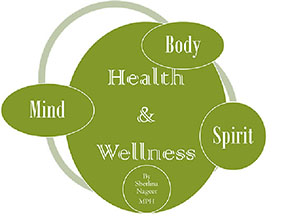The Government Information Agency (GINA) recently released a statement saying that garbage was a sign of development, accompanied by a picture of a grinning Minister of Local Government Norman Whittaker next to a large trash pile. Over the years, we have heard similar statements about what constitutes progress, with the number of vehicles on the roadways and new buildings being touted as key indicators.
Some Guyanese believe this crap; however, garbage piles, vehicles, and buildings are not signs of development. The fact is that heaps of garbage in the streets is a clear indicator of broken systems of governance and accountability, a health hazard, a deterrent to tourists, and an embarrassment to the national image. Garbage is nothing to be proud of and those who try to justify this are playing dirty politricks.
Waste is an inevitable byproduct of everyday life. There is an excess of packaging, no recycling programme, indiscriminate littering and dumping, and generally poor waste management in Guyana. Compounding these problems are clogged waterways, leading to the flooding which has become a regular feature of Guyanese life. We are all familiar with the consequences of flooding – damaged household items, destroyed gardens, crops, and businesses, and the affliction of skin rashes, infections, and water-borne illnesses such as dysentery and typhoid. Garbage also attracts vermin like flies, cockroaches, and rats which spread numerous diseases.

This is exactly what we see in Guyana today – people who don’t think twice about littering and dumping the garbage from their homes and businesses in the streets, who don’t care if their neighbours are inconvenienced or flooded by concreted up drains, who lack a sense of community and take no pride in their surroundings, who would rather be anywhere else than the nation of their birth, and who are killing themselves at a spectacular rate. Progress this is definitely not.
In 1990, two economists – a Pakistani, Mahbub ul Haq, and Amartya Sen – a Nobel prize winner from India, developed the Human Development Index (HDI) to measure development in real ‘people’ terms, instead of just looking at financial statistics. The HDI assesses health, education, and income levels of each country in the world. In 2010, a measure for assessing inequality was added to the HDI, creating the Inequality-adjusted HDI. The HDI and IHDI have since been adopted by the United Nations Development Programme. Simply put, the (I)HDI measures the life expectancy, years of schooling expected and obtained, and standard of living of people in each nation of the world.
Guyana consistently ranks in the bottom tier of the HDI. In 2014, Guyana was rated 121 out of the 187 countries surveyed – the second worse in the Caribbean, better only than Haiti, and just marginally better than its 2013 ranking.
This came as no surprise to most Guyanese who are intimately familiar with the struggles of daily life, and who have seen Guyana stuck in the bottommost level of the HDI year after year. However, those invested in upholding the status quo still try to put a positive spin on this dismal ranking, as they attempted with the garbage situation. One common tactic is to cast the net back to 1992 and talk about the advances since then. This is disingenuous however, for there have been significant changes in the data collection/measurements over the years and it is more accurate to compare more recent years to each other, rather than decades past. Reaching back to the 1980’s also attempts to deflect from the reality that the services provided over the last two decades by the single ruling party have been sub-par at best.
Instead of taking responsibility and attempting to make real improvements, politricks and the blame game gets played while we the Guyanese citizens continue to suffer.
We are fed statistics of numbers of new schools constructed, but the fact is that a school building does not mean a well-educated child.
I regularly interact with children in the public school system and most of them are significantly below where they should be on basic literacy indicators, barely able to read and write properly. The Ministry’s own data show a dismal 32% grade literacy rate, a high dropout rate among boys at the secondary level (less than 30% graduate), and several high level MOE staffers have spoken out recently about the need to check the obvious downward spiral of the education sector.
Maternal mortality is another key indicator of the strength of a country’s healthcare system and something that Guyana has consistently been unable to reduce. According to the latest report from the World Health Organization, we have the second worst rate in the Caribbean, again only better than Haiti. Among the recent fatalities is a young mother who gave birth on Christmas Day and died before the New Year. Numerous reports of medical malpractice continue to flow from patients using the public healthcare facilities, especially the Georgetown Public Hospital, with errant staff rarely being punished or held accountable.
Unemployment remains staggeringly high as does the brain drain (emigration) of skilled personnel who see no future for themselves in Guyana. The gap between the haves and the have-nots continues to widen, with those in power, their friends, and family members grabbing the majority of the national resources.
These are some of the real indicators of development and clearly Guyana is in a mess indeed. Do not be fooled. We must demand better. We need improved health, education, employment and opportunities for advancement. We need justice and accountability for all, and freedom from fear and persecution when speaking critically of the governing entities. That is what real progress and a healthy society looks like; anything else is just plain rubbish.




